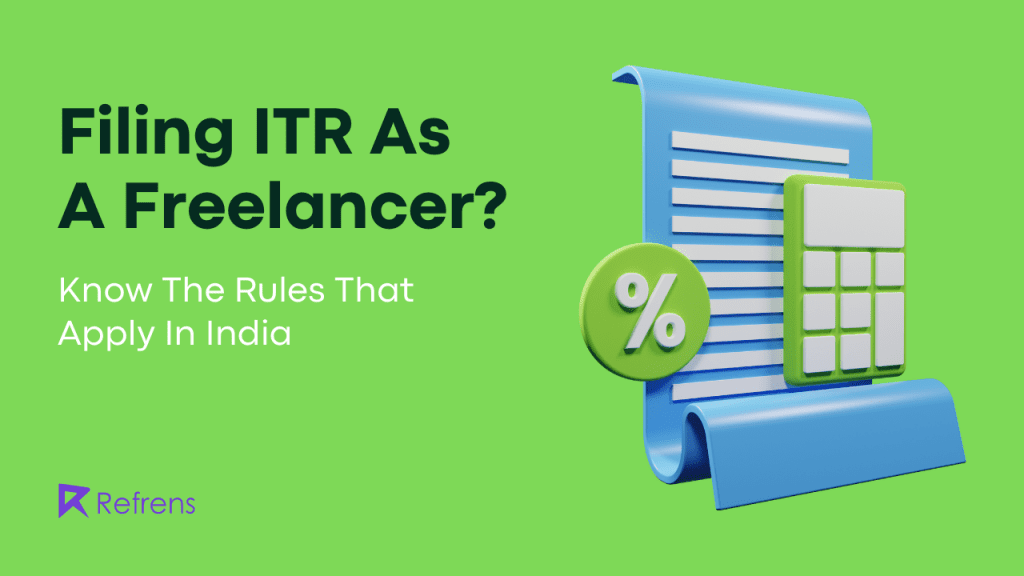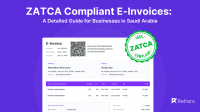A rising number of people are becoming interested in freelancing as technology advances. However, there is still considerable ambiguity regarding the taxation of freelancers and their profits.
Freelance income is classed as ‘earnings and gains from firm or profession’ for tax purposes. While this may come as a surprise to some, it is because money is seen as self-employment earnings.
Freelancers are also liable to pay income tax. Any income earned from a profession requiring to display intellectual or manual skills is taxed under the head ‘Profits and Gains from Business or Profession’ in the Income-tax Act.
A freelancer is recommended to collect all their income through banking channels to ease the information gathering process. To calculate the gross income they then just have to add all the receipts shown on their bank account statement.
Also, Check out the latest guidelines of E-Invoicing for firms with a turnover of Rs. 20 Cr+ From April 1, 2022
Income Tax Taxation Slabs
If the amount of money you earn exceeds the income tax exemption limit, you need to file the return and pay the tax. The limits are the same for every individual, hence freelancers should also consider the following rates for calculation purposes:
Table 1 showing Income Tax Taxation Slabs (under the old regime)
| Income Slab (In Rs.) | Tax rate |
| 0 – 2.5 lakhs | – |
| 2.5 – 5 lakhs | 10% |
| 5 – 10 lakhs | 20% |
| > 10 lakhs | 30% |
Table 2 showing Income Tax Taxation Slabs (under the new regime, FY 2020-21)
| Income Slab (In Rs.) | Tax rate |
| 0 – 2.5 lakhs | – |
| 2.5 – 5 lakhs | 5% |
| 5 – 7.5 lakhs | 10% |
| 7.5 – 10 lakhs | 15% |
| 10 – 12.5 lakhs | 20% |
| 12.5 – 15 lakhs | 25% |
| > 15 lakhs | 30% |
The government has come up with a new tax regime as stated above. This is an optional tax regime. The option to be exercised on or before the due date of filing return of income for AY 2021-22. A taxpayer with business income has an option to withdraw once after choosing the new tax regime and will post follow the regular income tax slabs. Also note that any individual, opting for the new regime, needs to give up certain exemptions and deductions.
Filing ITR As A Freelancer
Every year, a freelancer, like any other individual, is required to file an income tax return. They can only choose between ITR-3 and ITR-4. Another thing to remember is that if salaried person gets money from freelancing outside of their job, they will be forced to file an ITR form, which is only available to people who earn money from their own business or profession.
Those who make a living as a freelancer can deduct expenditures incurred while working as a freelancer from their taxable income.
When filing an ITR, freelancers are not entitled for the standard deduction of Rs 50,000. The standard deduction is available to salaried taxpayers who also did some freelancing throughout the fiscal year.
Under the Income-tax Act, for the taxpayer following the old tax regime, the government allows certain deductions of specific expenses directly related to their job/profession.
Deductions pertaining to the freelancers are:
- Rent paid on property hired for carrying out work
- Costing of repairs paid by you on the rented property or owned property
- Repairs specific to your laptop, printers, and other equipments
- Expenses related to purchasing a printer, office supplies, your monthly telephone bills, internet bills, and conveyance expenses
- Traveling cost within or outside India, carried with the purpose to meet your clients
- Other expenses like meal, entertainment or hospitality expenses
- Cost of apps purchased in relation to testing your product and domain registration
- Money spent in regards to client meetings, over dinner, or gone for any outing exclusively with the objective of acquiring new business or for holding on to existing business
- Local taxes and insurance on owned business property
Presumptive Method Of Taxation
A scheme only available to businessmen previously is now extended to freelancers. Any Indian resident liable to pay Income-tax working in the prescribed profession (including engineering, and technical consultancy) with gross income less than Rs. 50 lakhs in a FY, has an option to pay tax on a presumptive basis only for the income earned from the mention professions, under Section 44ADA of the act.
For the purpose of tax calculation, income is to be presumed as 50% of the total gross professional receipts during the FY or amount earned by the freelancer higher than the previously mentioned sum claimed. A flat rate of 8% is charged on the gross annual income of the professional.
Following the provisions of Section 44AA, it is compulsory to maintain books of accounts for each individual opting for a prescribed profession. They are also required to maintain books of accounts if the income from the business exceeds Rs. 1.20 lakh, excluding the income from the prescribed profession. If the business turnover is above Rs. 1 crore, under Section 44AB, a tax audit for business income is mandatory.
For paying the tax, a tax return must be filed. A freelancer can use ITR 4 for the same. Account books may necessarily only be audited if your earnings exceed Rs. 1 crore, otherwise not required. ITR 4S form is to be filed by freelancers choosing the Presumptive Method of taxation.
Check out the best billing software of 2023.
Calculating Taxes As Freelancers
TDS is usually deducted from freelancer compensation by most companies. When determining your tax liability, remember to include the TDS.
If a freelance income earner’s net taxable income exceeds Rs 10,000, he or she must pay an advance tax payment every quarter before the due date.
Freelancers must pay interest if the total tax on computation exceeds Rs 10,000.
Check out our comprehensive guide to GST E-Invoicing and how refrens can assist you with an online GST invoice generator.
Forms To Complete When Filing an ITR
When filing tax returns, a freelancer can utilize form ITR 4. According to ITR laws, if your revenue exceeds Rs 1 crore, you should have your account books audited (Section 44AB). In this situation, you must file your ITR by September 31st.
There is no need for an audit if your turnover is less than Rs 1 crore, and the deadline for filing your ITR is July 31st.
The ITR Form 4S should be utilized if a freelancer chooses the Presumptive Method of Taxation under Section 44AD and Section 44AE of the Income Tax Act.
How To File A Freelancer’s Income Tax Return
Step 1: Determine how much money you made on a gross basis.
Step 2: Subtract all of your spending for the fiscal year.
Step 3: Determine the amount of depreciation for that fiscal year.
Check out the top tax tips for a freelancer for more information on how to thrive at tax filing.
Recommended Reads: Top 7 Invoice Generator Software


















